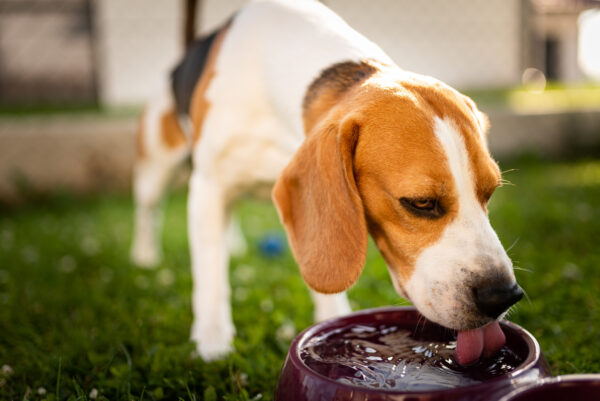There’s no doubt diet can make an enormous difference to your pet’s health. So, when your cat or dog is ill, can veterinary diets provide significant benefits? Here’s the lowdown on this particular type of pet food.
Veterinary diets explained
Veterinary diets (also known as ‘prescription’ or ‘therapeutic’ diets) are pet foods that have been specially formulated to help manage a specific health condition. So, they may contain active ingredients that are known to improve certain symptoms or a mix of nutrients tailored to pets with special requirements.
For example, a diet for pets with renal issues will typically be low in phosphorus and sodium to reduce strain on the kidneys. On the other hand, a diet for diabetic pets will be high in fibre and protein to slow digestion and help regulate blood sugar levels.
Does my pet need a veterinary diet?
Here’s the number one thing to remember about veterinary diets: as the name suggests, they need to be recommended by a vet. So, if your pet has a health condition, we suggest taking them to their vet for a thorough examination. Veterinary diets can be life-changing for some pets but may cause harm to others without a correct diagnosis.
A veterinary diet is not necessarily for long-term use either – it can be part of a treatment regime. So your vet may advise it for some time, monitor the effect on your pet’s health and decide if (or when) it’s the right time to switch back to a regular diet.
The importance of prevention
Both clinical trials and customer reviews go to show veterinary diets can have a positive impact on the lives of many cats and dogs. However, they aren’t the solution to every problem.
Something we don’t always realise is some of the most common diseases are highly preventable. Dental disease, for instance, can be avoided with an oral care routine. And obesity (a disease estimated to affect 65% of dogs in the UK) could be prevented with portion control and physical activity.
Other issues, like skin allergies or stomach upsets, can often be reversed with a diet that is higher in good-quality protein (like whole meat) than it is in grains. So while veterinary diets have their place (and an important one), sometimes all a cat or dog needs is a suitable diet.
The bottom line
Veterinary diets can offer great support at a time when your pet needs it. However, they are specialised products that should only be fed on the recommendation from your vet.
As every pet is unique, finding the right diet may take some trial and error – this is where learning about your options can come in handy. Just remember, your vet is there to help you.



